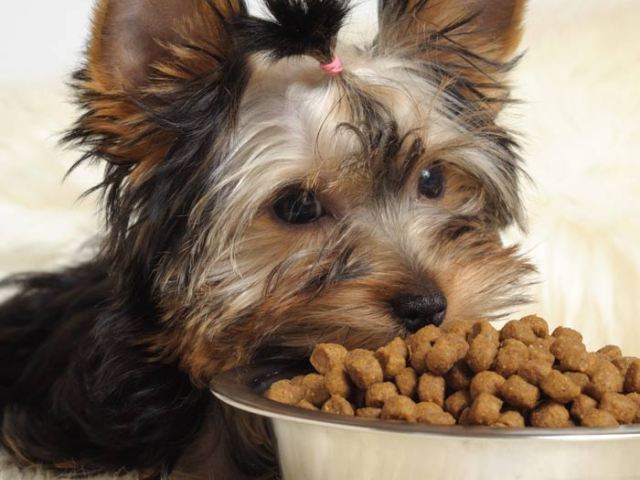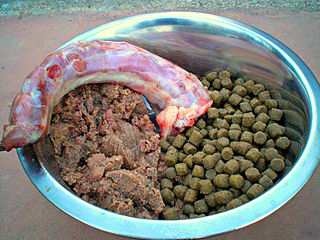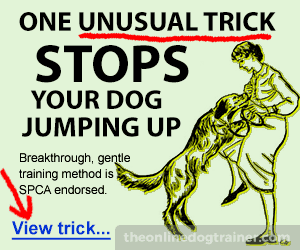Dog Food Bacteria: A Raw Diet Carries a Higher Risk
By The US Center for Disease Control

In 2007 there was a spate of dogs and cats in the US developing kidney failure resulting in death. The cause turned out to be melamine, a non-food substance, contained in pet food imported from China. Some pet food brands were recalled.
In the aftermath of these illnesses many pet owners turned away from store-bought pet food brands and sought alternatives. Some cooked their own dog food; some switched their dogs to a raw food diet and prepared that themselves. As pet owners tired of this extra effort, boutique pet food companies came into existence to fill the need for safe raw dog food.
Myself, I never switched. Fortunately I hadn’t been feeding my dog any of the brands affected by the recall. My sister made her own cooked dog food for a while but didn’t stick with it. But anyway, apparently in the last 10 years there has been an increase in dogs getting sick from bacteria in their raw meat, eggs, rice and vegetables.
Neither the US CDC or FDA recommends a raw diet because of the risk of illness. This is what the CDC has to say:
A healthy diet is important for everyone, even your pets! When picking out the right food for your pet, there are important things to consider. Did you know that what you feed your pet can even affect your health and the health of your family?
Raw pet foods can make pets and people sick
You may be considering a raw food diet for your pets because you have heard that it is healthier. But raw food diets can make you and your pet sick, and for that reason CDC does not recommend feeding raw diets to pets. Here’s why:
Germs like Salmonella and Listeria bacteria have been found in raw pet foods, even packaged ones sold in stores. These germs can make your pets sick. Your family also can get sick by handling the raw food or by taking care of your pet.

There are more harmful germs in raw pet food than any other type of pet food, according to U.S. Food and Drug Administration studies.
What about dry and canned pet food?
If handled incorrectly, these foods also can be contaminated with germs such as Salmonella bacteria. Outbreaks of Salmonella infections have been linked to dry dog food. To stay healthy, it is important to always wash hands right away after feeding your pet. Store pet food out of reach of toddlers and infants.
Before making any changes to your pet’s diet, talk with your veterinarian.
Doggy Dan shows how to keep your dog out of the kitchen
Access all 100+ videos for 3 days for just $1
Or first, let me tell you what it's like to be a member
Tips to stay healthy while feeding your pet
Wash your hands right after handling pet food or treats; this is the most important step to prevent illness.
When possible, store pet food and treats away from where human food is stored or prepared and away from reach of young children.
- If possible, store dry pet food in its original bag inside a clean, dedicated plastic container with a lid, keeping the top of the bag folded or closed.
- If possible, store dry pet food in its original bag inside a clean, dedicated plastic container with a lid, keeping the top of the bag folded or closed.
Do not use your pet’s feeding bowl to scoop food. Use a clean, dedicated scoop, spoon, or cup.
Always follow any storage instructions on pet food bags or containers.
- Keep dry pet food and treats stored in a cool dry place.
- Promptly discard, refrigerate, or store any leftover food.
If you decide to feed your pet raw food
CDC does not recommend feeding raw diets to pets, but if you do:
Wash your hands and surfaces thoroughly after handling raw pet food.
- Wash your hands with soap and water right after handling any raw pet food.
- Clean and disinfect all surfaces that the raw food touched, like countertops, microwaves, refrigerators and objects like knives, forks, and bowls.
- Wash your hands with soap and water right after handling any raw pet food.
Safely store and handle raw pet food.
- Keep raw pet food away from other food in your refrigerator or freezer.
- Freeze raw pet food until you are ready to use it.
- Do not thaw frozen raw pet foods on a countertop or in a sink.
- Throw away any food your
pet does not eat.
- Keep raw pet food away from other food in your refrigerator or freezer.
Safely play with your pet after he or she eats.
- Do not let your pet lick around your mouth and face after eating.
- If you do play with your pet after they have just eaten, wash your hands, and any other parts of your body they licked, with soap and water.
- Do not let your pet lick any of your open wounds or areas with broken skin.
- Do not let your pet lick around your mouth and face after eating.
How do I know if my pet is sick or might have germs that can make me sick?
Not every pet will get sick after eating raw pet food. Keep in mind that even if your pet eats raw food and seems healthy, they could still carry germs like Salmonella bacteria. As a healthy carrier, your pet could then pass on germs from the raw food to the environment when he or she poops.
A pet that develops a Salmonella or Listeria infection may show these signs:
Nausea and vomiting
Diarrhea, which may be bloody
Fever
Loss of appetite
Decreased activity level
It is important to call your veterinarian if your pet develops any of these signs.
Children and pets
Young children are especially at risk for illness because their immune systems are still developing and because they are more likely than others to put their fingers or other items into their mouths.
Children younger than 5 years old should not touch or eat pet food, treats, or supplements and should be kept away from pet feeding areas to prevent illness and injury.
Adults should supervise young children when washing hands.







